[ad_1]
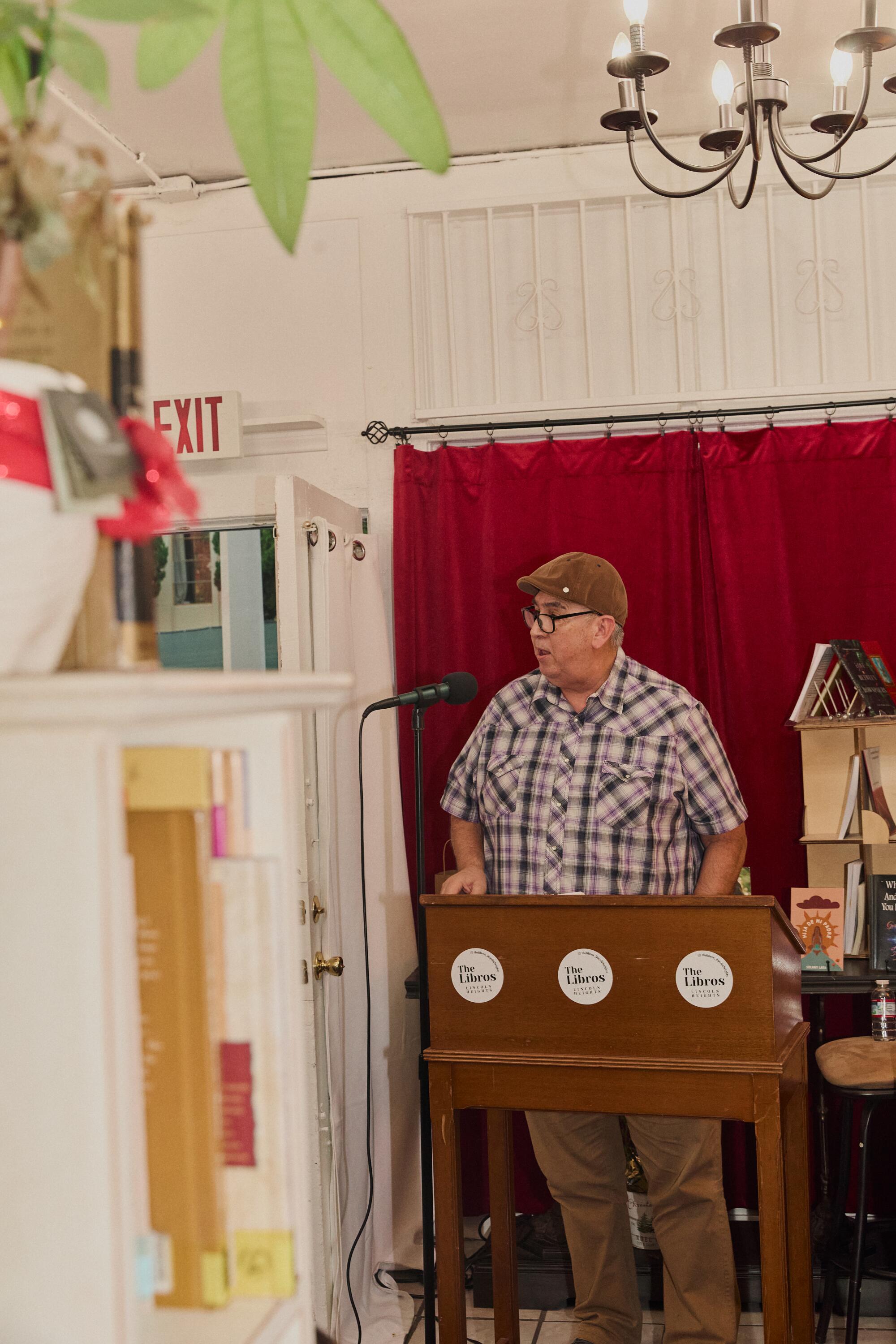
Donato Martinez reads his poetry at the Libros Lincoln Heights bookshop.
On a Saturday evening in late April, the door of the Libros Lincoln Heights is propped open. Inside, 18 local poets pack the narrow single-room bookstore, waiting for a chance to read a poem or two at this month’s open mic in front of an enthusiastic audience.
Donato Martinez, an English professor at Santa Ana College, is the third poet to take the podium. He reads from a stack of loose papers, his hands moving in time with the stanzas he spits like rap bars.
“All street vendors are allowed. / taco stands that never get shut down / Free zone any time / Patrolled by our own. That means Elotes. Churros. Bacon wrapped hot dogs / Fruit cocktails anytime,” Martinez recites from his new poem, titled “If I Was God I Would Visit the Hood.”
The audience snaps and hums, layering their own harmony over the soft whir of the ceiling fan and the cars rushing down North Broadway.
Martinez’s poetry collection “Touch the Sky” can be found on the surrounding shelves, along with collections from three other of the night’s readers. Their presence speaks to the driving ethos behind the Libros: 80% to 90% of the merchandise on the bookstore’s mismatched shelves are written by residents of Lincoln Heights and nearby neighborhoods.
“I don’t just have one little shelf for local authors. The whole place is local authors,” Jesse Marez, the owner of the Libros, said. “It blends in with the neighborhood.”
Marez, an electrical engineer by trade and lifelong book lover, opened the Libros last November, in an effort to consolidate the bookshelves he’d been curating at cafes across the Eastside since late 2021. He estimates that it is the first bookstore in Lincoln Heights in upwards of 70 years.
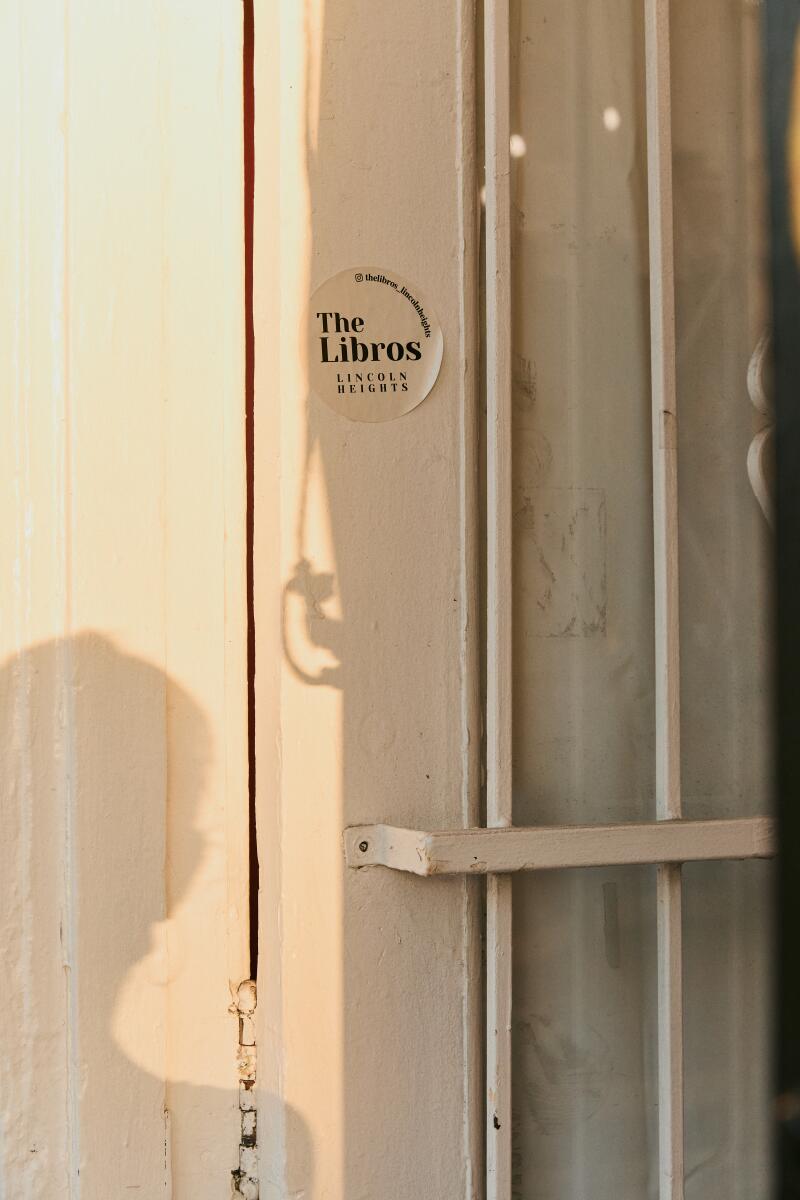
A sticker for the Libros on the doorway of the shop.
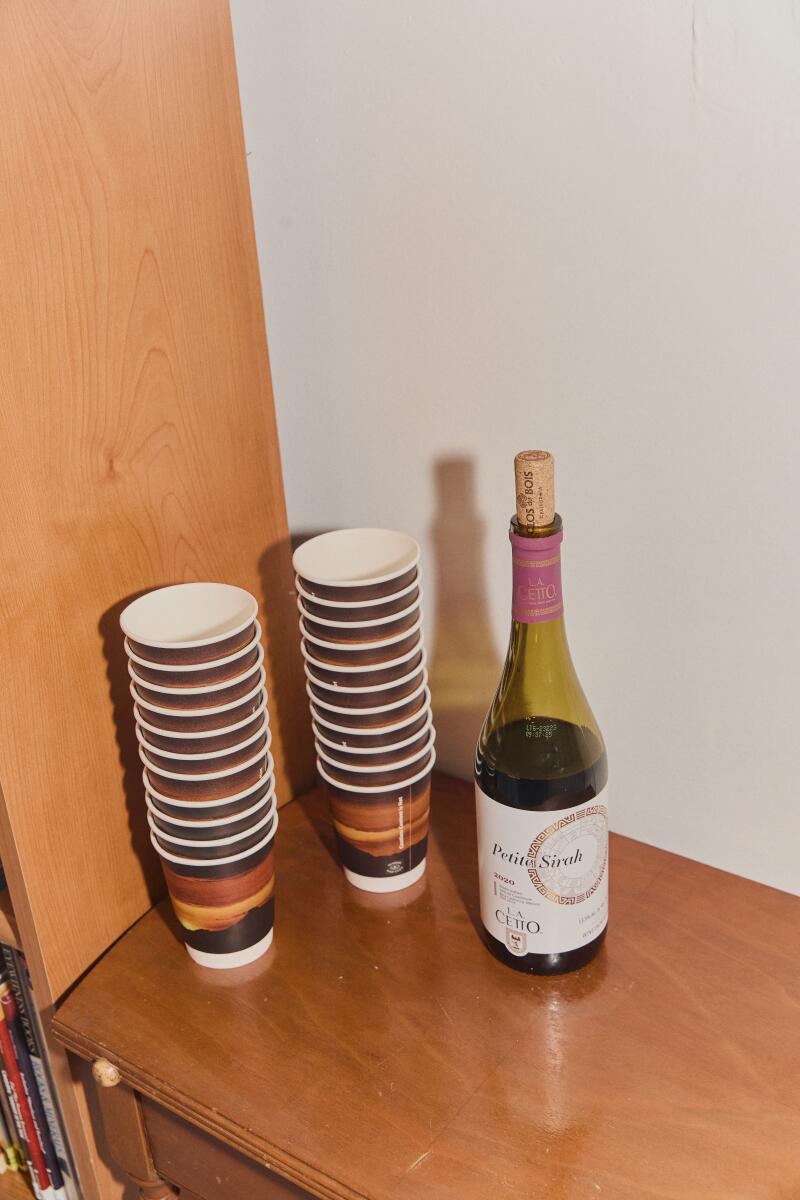
Beverages at the open mic poetry reading.
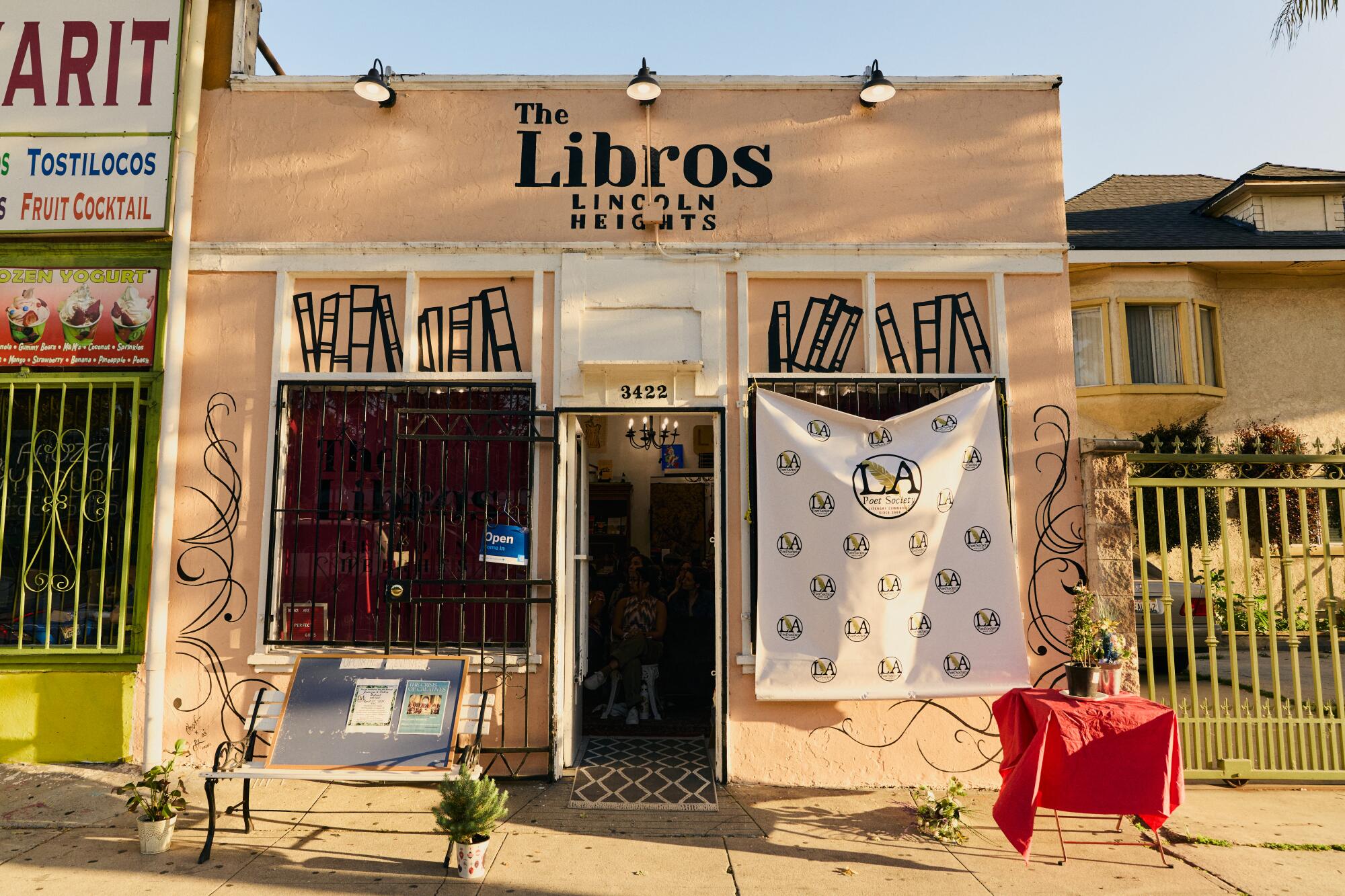
Growing up in Lincoln Heights and neighboring El Sereno, where his family settled after immigrating from Mexico in 1969, Marez experienced this paucity firsthand. Now he’s determined to be at least one place where local authors can share their stories and readers can find a book across a variety of languages and genres.
“We didn’t grow up going to a bookstore or having books, so for me I think it’s valuable for a child,” Marez paused, ducking his head to wipe away tears. “I think it’s important for them to know they can have a book of their own, and it not to be a used book because we’re all used to hand-me-downs. I think in a neighborhood like this, people need to know that they can get a new book, especially at an early age.”
In the months since opening, the Libros has become a neighborhood hub, spotlighting books and authors that can’t always be found on the shelves of other bookstores. Collections of self-published poetry and family histories of Lincoln Heights sit alongside multi-award-winning books by Viet Thanh Nguyen and Kelly Lytle Hernández (also L.A. residents). On a table in the center of the room are copies of “Violet’s First Big Goodbye,” a picture book written by the bookstore’s youngest author, 8-year-old Luna Yanez-Cuestas.
Yanez-Cuestas, who lives in Burbank, wrote and self-published the book with her mother, Adriana Cuestas, to share the grief she felt after saying goodbye to her old neighborhood.
“It’s about saying goodbye to what you really love,” Yanez-Cuestas said.
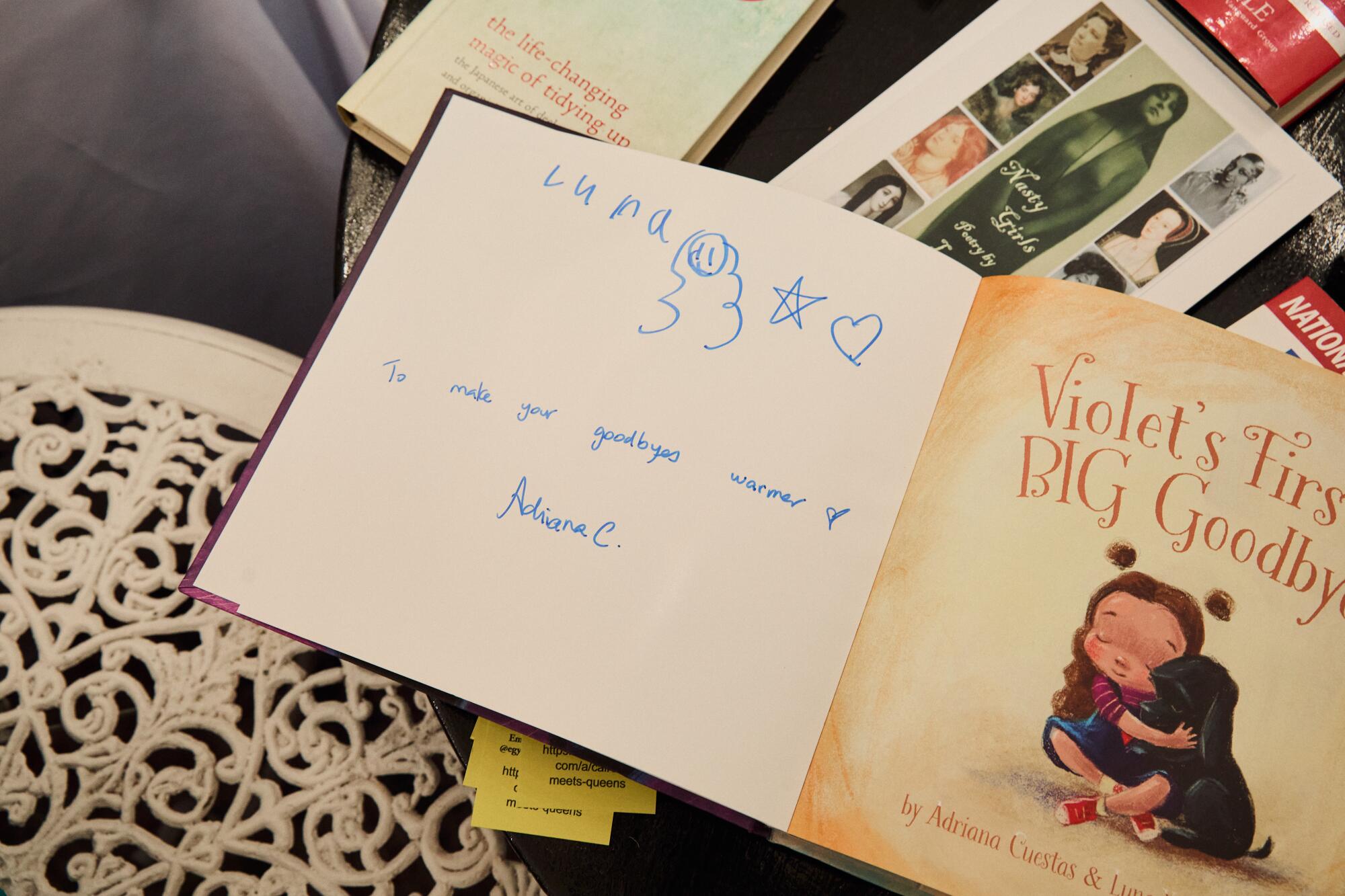
A signed copy of “Violet’s First Big Goodbye” by Luna Yanez-Cuestas lies on a table at the Libros bookshop.
Customers come to the store for this wide selection of books, many of which have been signed by their authors. Marez said most of the books sell quickly because they are local.
Readers aren’t the only ones who frequent the store. Authors regularly stop by with books tucked under their arms, shyly asking whether Marez will sell their memoir or poetry collection. His answer is always an enthusiastic yes, even as shelf space becomes increasingly limited.
Marez has a knack for finding local writers, too. He met Lluvia Arras, L.A.-based author of “A Kids Book About Blended Families,” when their sons were playing soccer together. A few months later, he connected with Joseph Robledo at an exhibit on the Olympic Auditorium at La Plaza de Cultura y Artes.
Robledo is the author of “Blood on the Canvas,” a book commemorating his father, local boxing legend Canto ‘TNT’ Robledo. The son of Mexican immigrants, the elder Robledo became an amateur boxer at 15, turned pro at 16 and won the Pacific Coast Bantamweight Championship at 19. He was on his way to the world championship when a series of injuries left him permanently blind.
“Blood on the Canvas,” guides readers through backyard gyms in South Pasadena to the World Boxing Hall of Fame to tell the story of his father’s transformation from would-be champion to inspirational trainer who touched the lives of hundreds.
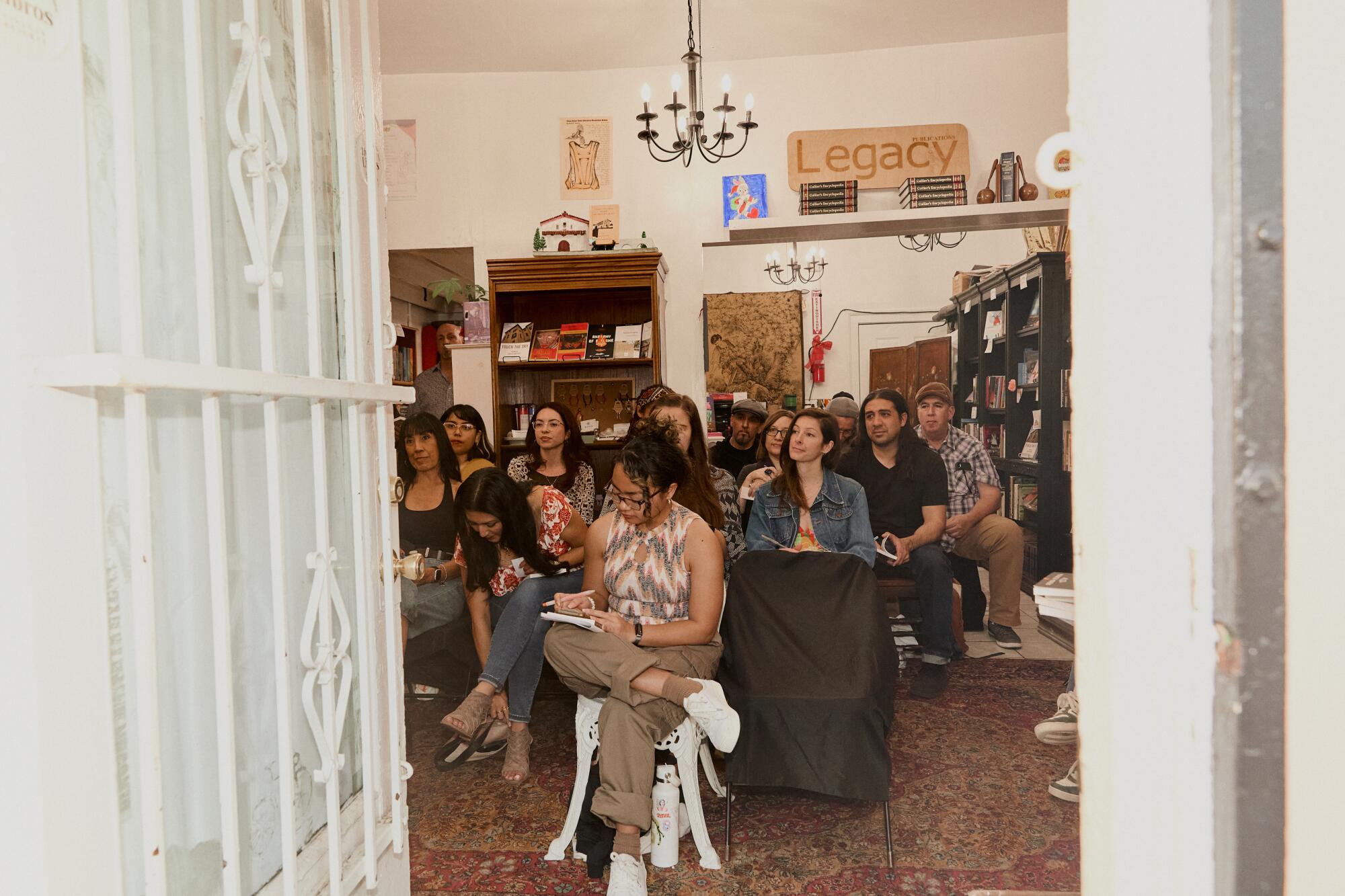
Attendees write poems during a poetry reading and open mic night at the Libros bookshop.
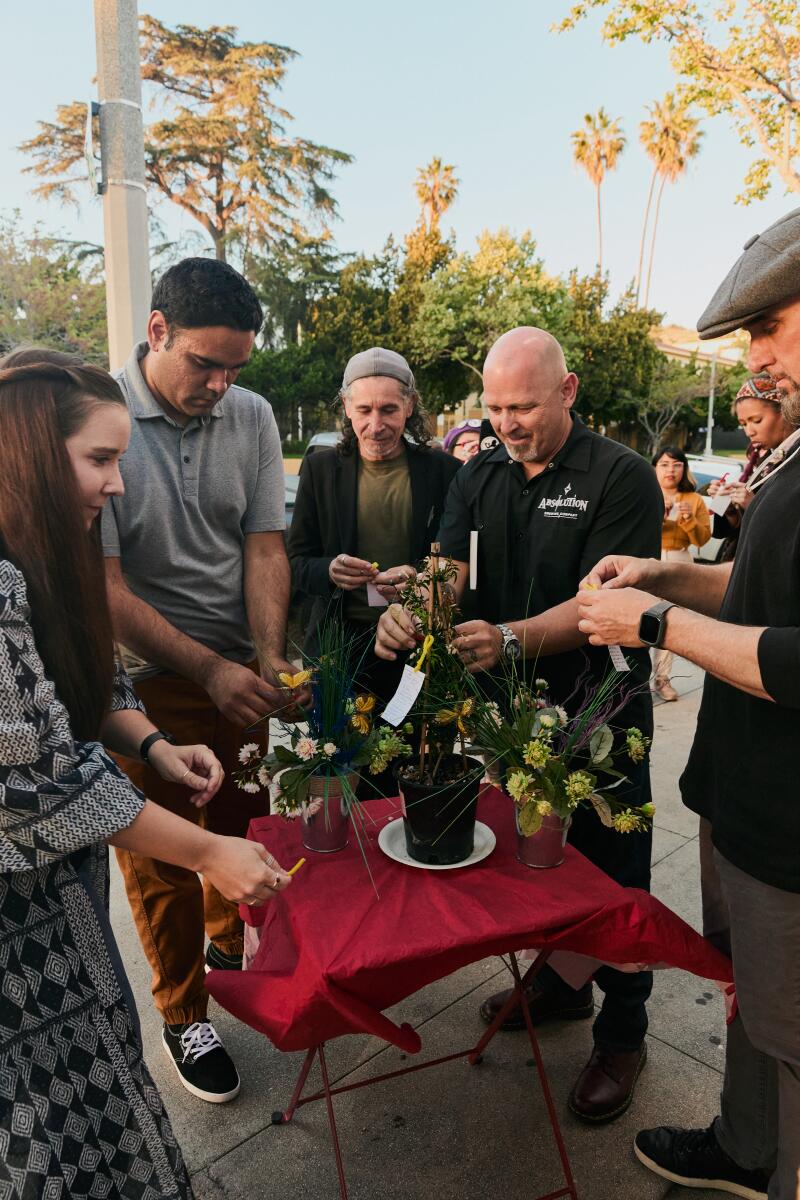
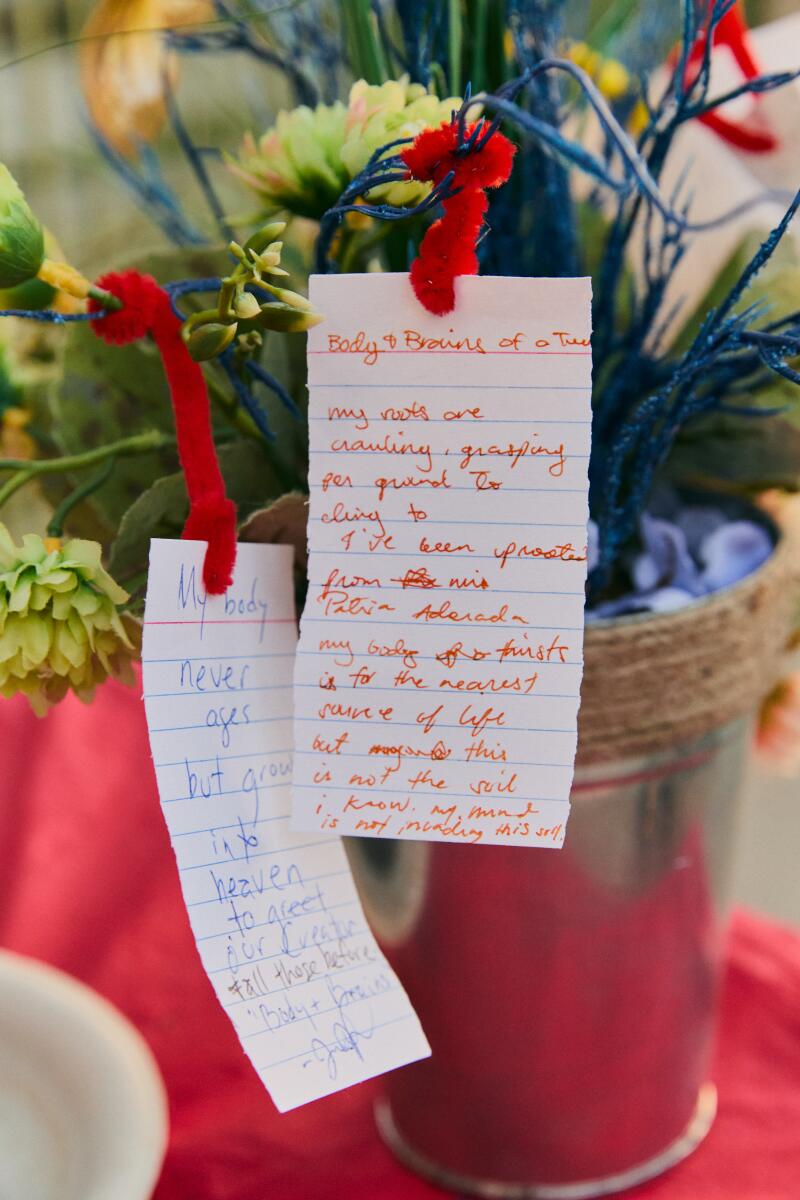
Attendees place their poems on plants outside the Libros bookshop.
Meeting authors like Robledo and Arras has drawn Marez into L.A.’s literary world and taught him tricks of a trade that is often opaque to outsiders.
Behind each book on the store’s shelves is a journey scattered with roadblocks. It’s challenging to break into the mainstream publishing world and, according to a new survey, the industry remains overwhelmingly white.
“I was obsessed with self-publishing because I thought based on how I hear things go for authors in our society, it just didn’t seem fair to give such a big part of your work to another person,” said Cuestas.
For these reasons, authors like Cuestas turn to independent or self-publishing to get their books out into the world. The latter, which has recently become increasingly popular, gives authors creative control and the potential to earn a greater share of the profits, said Brenda Vaca, an author based in Whittier who created her own publishing house to publish her poetry collection titled “Riot of Roses.”
But that creative control comes at the cost of donning all the hats: writer, publisher, distributor and marketer. Stewart J. Zully, who self-published a memoir about the 40 years he spent vending in Yankee Stadium, says he’s spent a large part of his writing career hustling alone and hoping for a break.
“The creativity and the work [to get] it done is one side of the brain and then the business side is completely different,” Zully said.
At the Libros, Marez is trying to lift a few of these hats off the authors’ heads by launching his own publishing company, Legacy Publications.
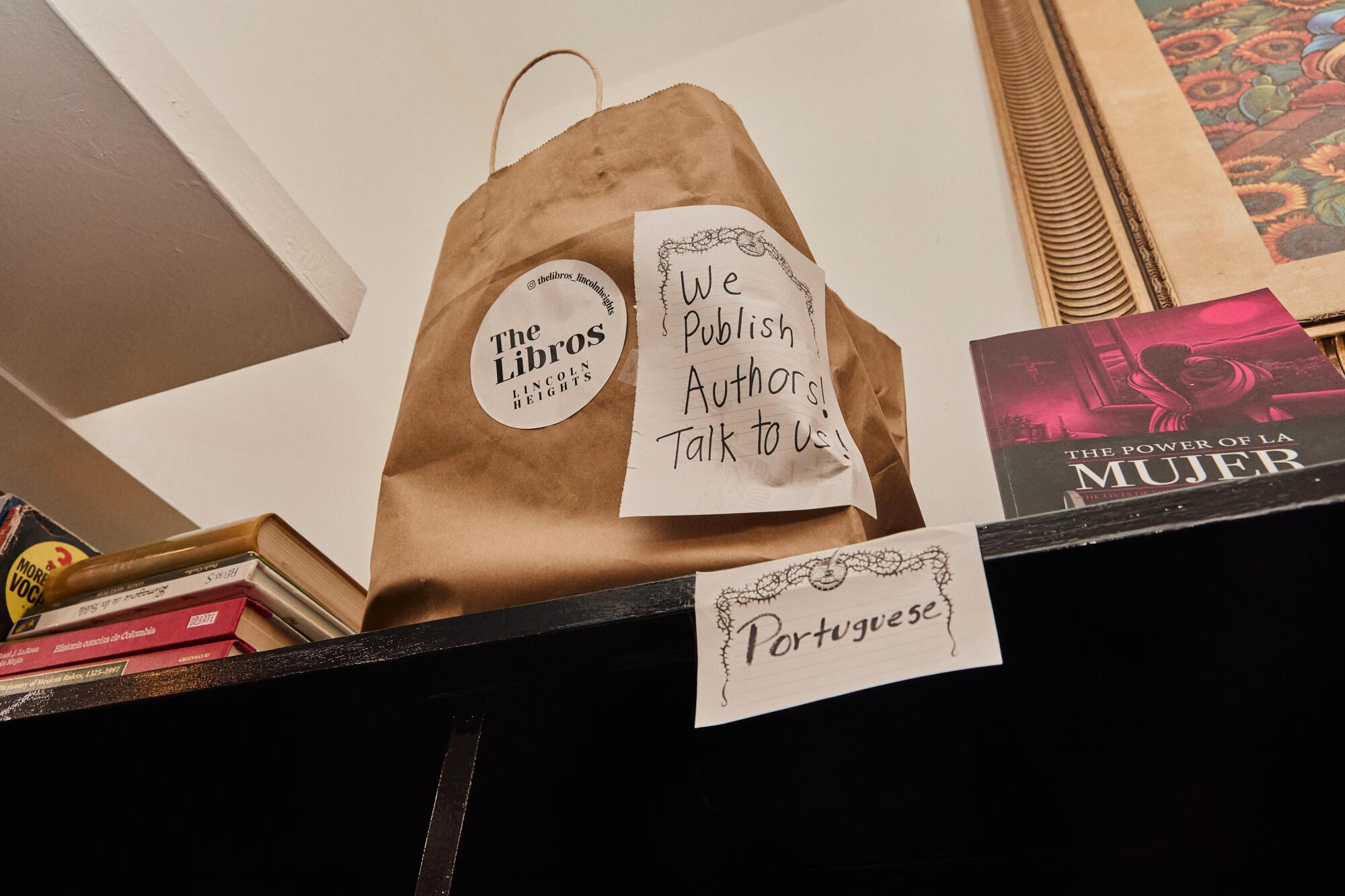
A paper bag with a sign that reads “We publish authors, talk to us” sits atop a shelf at the Libros bookshop.
“What we’re trying to do is help these authors with the distribution and the printing and the publishing,” he said. “Because they’re more worried about how to make a dollar or how to do the distribution, where they should be worried about their second book.”
Like the bookstore, Legacy Publications is deeply rooted in Marez’s pride for the Eastside neighborhoods he grew up in.
“I want to feature people that have actually made our community,” Marez said. “We want to talk about people who have left a legacy in our neighborhoods.’”
In launching this new branch of the business, Marez aims to highlight local voices, help authors make a profit and ensure the books themselves are made with high-quality materials. He prioritizes working with local printers such as Litho Press and Paperleaf Press and plans to release at least three books by the new year.
In his dual roles, Marez is filling Lincoln Heights with books that take readers to distant countries and eras, opening up new worlds. Alongside them, are stories that bring readers home with untold histories of the neighborhoods that have raised them and their families. The authors themselves find solace in knowing that, at least at the Libros, their books will be read and shared.
“Our books, they don’t appear at Barnes & Noble,” Martinez said, referencing how stories by authors of color have largely been kept out of mainstream publishing, and thus bookstores, for generations. “I wish they did and I think our stories belong there. If they’re not at Barnes & Noble, we need these independent bookstores to house our books. We support Libros and then Libros provides a safe space for the writers and poets. I think that right there is a relationship.”
[ad_2]
Source link